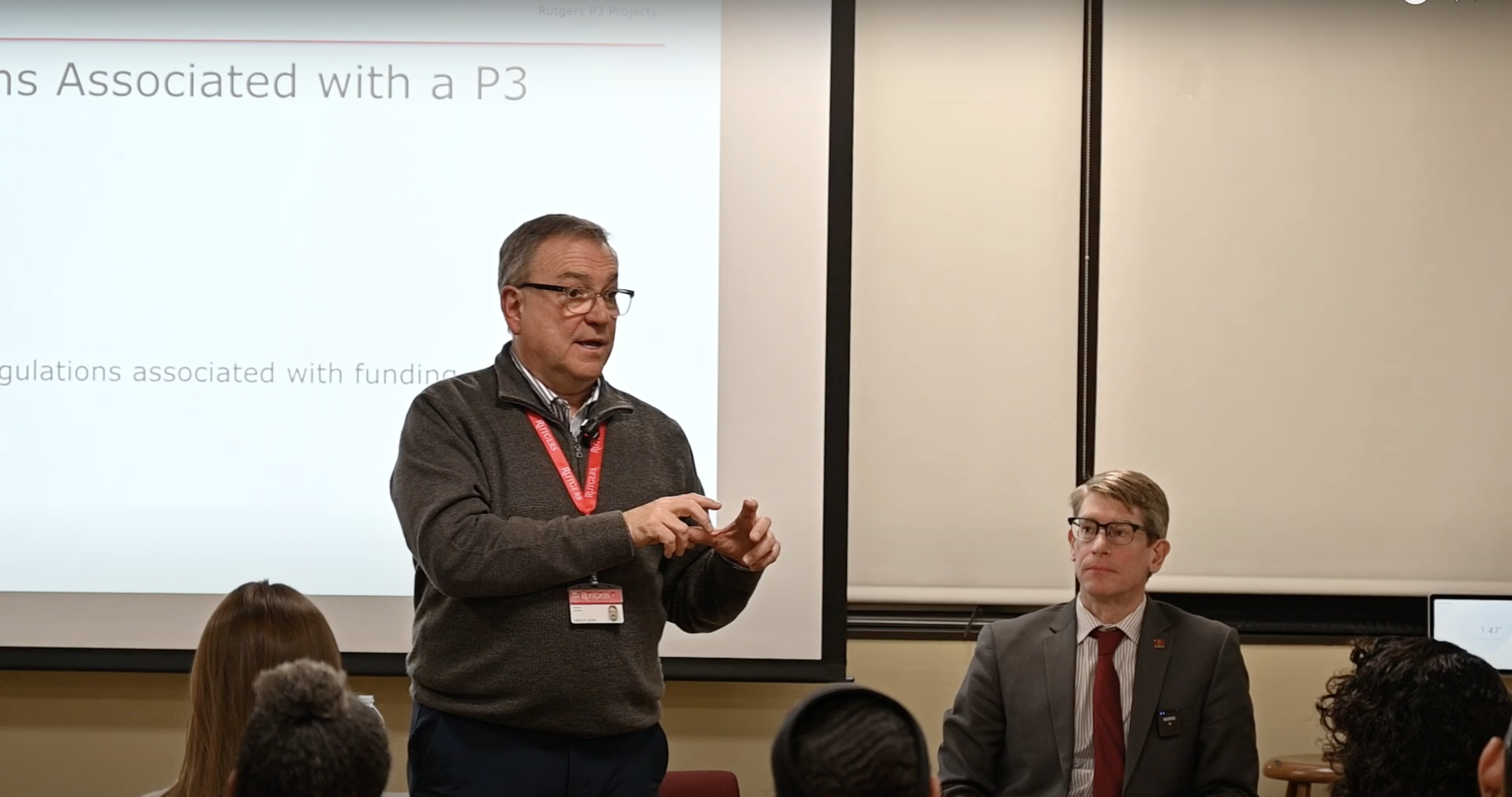
Rob Roesener about Public-Private Partnership (P3).
The latest PD+D Seminar Series was a conversation led by Tony Calcado, Dave Schulz, and Office of General Counsel’s Rob Roesener about Public-Private Partnership (P3) projects. Rutgers has a long history of participation in P3s and is a leader among university peers in this area. P3s allow school districts, colleges, universities, or other state entities to enter into an agreement with a private organization that assumes the financial and administrative responsibility for the development, construction, reconstruction, operation, and maintenance of a government-related project. The P3 project is financed in whole, or more often in part, by the private organization. P3s is referred to as a P4 when more than one public partner is involved, and Rutgers’ most recent P3 – a new building on the Rutgers Health Newark campus – is actually a public-public-public partnership.
P3 projects bring a level of complexity that is not seen in a traditional design-bid-build project. In addition to IP&O project delivery concerns, there are complicated legal and financial implications that come to bear. P3s have significant
advantages and some disadvantages, but for Rutgers the good typically far outweighs any downsides.
Below is the seminar series presentation:
Featured in the IP&O Newsletter, March 2025.

